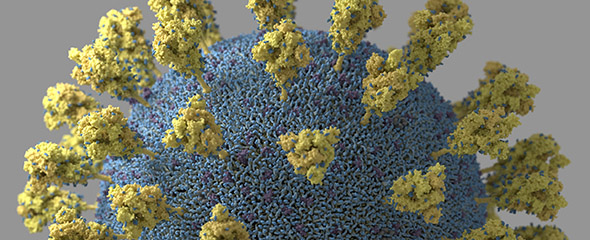The HZI scientists from the departments of Systems Immunology (located at BRICS) and Epidemiology, together with colleagues from Forschungszentrum Jülich, analyse available epidemiological data in Germany and the German federal states using mathematical models.
With the position paper, the scientists provide an assessing perspective on the current situation of the COVID-19 epidemic from the viewpoint of the Helmholtz Association's systemic immunology and epidemiology. Drawing on data-based and model-supported analyses, they present three scenarios for the further course of the epidemic. According to the experts, the overall goal should be to achieve the successive phasing out of contact restrictions without endangering the intermediate goals achieved and without losing control of the virus.
The complete Helmholtz statement is available here (Link file).
Sustained support for the Leopoldina statement
We strongly support the statements of the third Leopoldina ad hoc statement of 13 April 2020. Our recommendations add the important aspects of databased and model-supported analysis and monitoring of Rt values to the Leopoldina paper. The options for a phased exit, as detailed in the Leopoldina paper, can be supported and implemented more reliably with the modelling tool. On a daily basis, new data is entered into the models and the impact of the relaxation of measures is reassessed. The Helmholtz Association, in close cooperation with partners from science and industry, politics and society, would like to make its contribution to overcoming the COVID-19 infection, because broad scientific expertise opens up various perspectives on this major challenge and ultimately shows the best way out of the pandemic.

